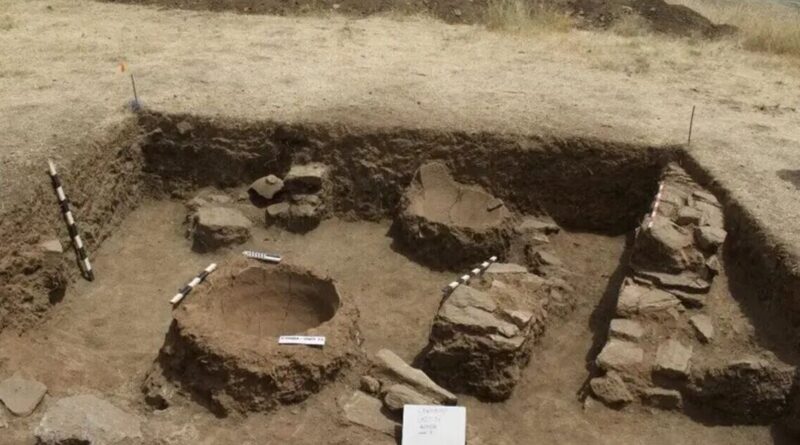Archaeology breakthrough as 2,400-year-old ‘lost capital city’ unearthed in Europe | World | News
Archaeologists excavating at Gradishte, a site in North Macedonia, believe they may have uncovered the remains of the city of Lyncus. This is believed to be the lost capital of the ancient Kingdom of Lyncestis.
Early estimates of the site placed the city to the reign of King Philip V (221- 179 BC). However, the recent discovery of a coin minted between 325 and 323 BC now places the site to the reign of Alexander the Great – one of history’s greatest and most successful military commanders. The discovery of stone axes and ceramic fragments suggest, meanwhile, that the area was inhabited as early as the Bronze Age (3,300 – 1,200 BC).
Gradishte in Bitola, North Macedonia, was first discovered 15 years ago and has been the subject of ongoing excavations by a joint team of archaeologists from Macedonia’s Institute and Museum-Bitola and the California State Polytechnic University, Humboldt.
In 2023, archaeologists deployed non-invasive techniques, including ground-penetrating radar and drone-mounted LiDAR, which revealed an extensive urban area featuring an acropolis and a Macedonian-style theatre. The acropolis alone extended across an area measuring at least seven acres.
According to the archaeologists, the discovery of stone axes and fragments of ceramic vessels sheds light on North Macedonia’s past, when the ancient state was one of the first modern states in Europe.
Nick Angeloff, Cal Poly Humboldt Anthropology professor and archaeologist, said: “This discovery is significant. It highlights the complex networks and power structures of ancient Macedonia, especially given the city’s location along trade routes to Constantinople.”
“It’s even possible that historical figures like Octavian and Agrippa passed through the area on their way to confront Cleopatra and Mark Antony at the Battle of Actium.”
According to the professor, the city could be Lyncus, the lost capital of the Kingdom of Lyncestis (“land of the lynx”), an autonomous kingdom in Upper Macedonia that resisted Argead rule until Philip II’s conquest in 358 BC.
It was at Lyncus where Eurydice, queen and wife of King Amyntas III of Macedon (and grandmother of Alexander the Great), was born.
“Students, faculty, and researchers from National Institute and Museum–Bitola and Cal Poly Humboldt are working to continue uncovering the full story of this ancient city. This ongoing work promises to reveal more about the intricate networks and vibrant culture of ancient Macedonia, offering valuable insights into the development of early European states and their influence on the world,” said the Cal Poly Humboldt official press statement.





